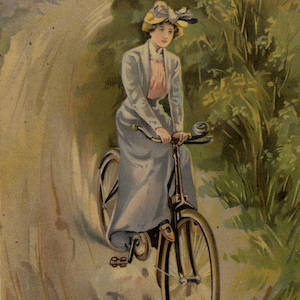Gender
Women at the Cordeliers
Popular clubs in Paris, unlike electoral assemblies, were not limited to men, at least in the early months of the Republic.
Women at the Jacobins
An observer of Jacobin club meetings in 1791, in the passage below, describes somewhat disorderly debates, in which speakers are shouted down from the rostrum and women participate openly. This is indicative of what this author sees as the "ungovernable" situation in Paris.

Salem Witch Trials Documentary Archive
This archive houses a fantastic collection of source materials pertaining to the 160 women and men accused of witchcraft in the late 17th century in the Massachusetts Bay colony.
Jewish Women's Archive
The Jewish Women’s Archive (JWA), a national non-profit organization, seeks to collect and promote the 'extraordinary stories of Jewish women.'October Days: Deposition of a Marcher
The commission investigating the October Days took testimony from twenty–five women who had participated, including Marie–Rose Barré, a twenty–year old unmarried lace–worker, whose testimony is excerpted below.
October Days: An Alternate View
A Revolutionary activist named Fournier, known as "the American" because he had been born in the French colony of Guadeloupe, here recalls his own role as a National Guardsman in the October Days as being more important than that of the market women.
Stanislaus Maillard Describes the Women’s March
Stanislas Maillard, a National Guardsman and "veteran" of the taking of the Bastille, here testifies at a police court, on the events of 5–6 October. Notice that he ultimately supports the activism of the market women.

Canadian Women's History
There is also a great deal of material on the foundation of female education and on the women’s suffrage movement.Imperialism in North Africa: Song, Amina Annabi
North African women have long, rich traditions of vocal and instrumental music. At weddings and other joyous occasions, including religious celebrations, female musicians sing, perform, and dance.
